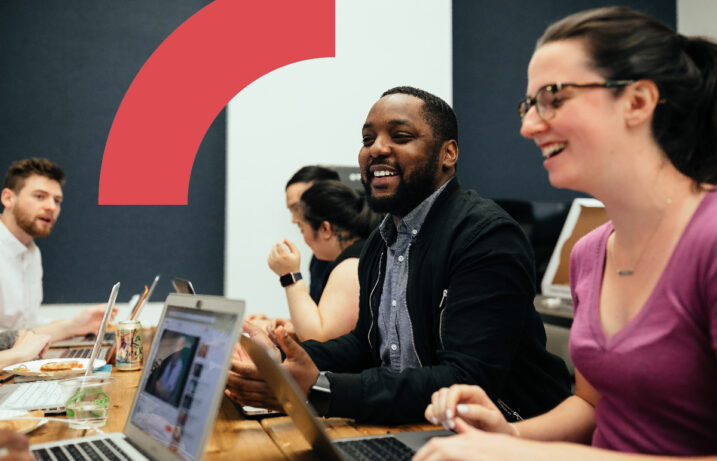This article is part of the Coaching Collective series, featuring tips and expertise from Flatiron School Career Coaches. Every graduate at Flatiron School is eligible to receive up to 180 days of 1:1 career coaching with one of our professional coaches. This series is a glimpse of the expertise you can access during career coaching at Flatiron School.
A bootcamp, by definition, is an intensive training program. While you’ll have the support of your classmates and instructors, the program — like the military bootcamp term implies — is still tough. When your bootcamp becomes intense, focus on your purpose — the answer to the question “Why am I doing this?”
When you are struggling to manage your time, your purpose explains why you may have missed out on some quality time with friends this week. When you are interviewing for your brand-new job after graduation, your purpose tells the recruiter how your journey to becoming a software engineer fits into your overall goal.
Not sure yet about your purpose for pursuing a bootcamp? Try to answer these questions:
- How will your life change after you complete this bootcamp?
- How will you be able to contribute to things you care about when this bootcamp is over?
- How does this bootcamp bring you closure to things that make you feel fulfilled?
Once you know your purpose, these 7 mindsets will help you succeed during bootcamp.

1. Be curious
It feels really good to solve a challenging problem or answer a question correctly. However, learning isn’t just about getting the correct answer. It’s about progressively building an understanding of how things work.
With a curious perspective, the pressure to get a question right, becomes an opportunity to try and learn from your results. The desired outcome is no longer “right” or “wrong.” The desired outcome becomes “I understand.”
Curiosity is a desirable mindset that will follow you throughout your career, starting with your bootcamp. Here are some examples of what it looks like to be curious in a bootcamp:
- Examine the problems you get wrong but also the problems you get right. Do you understand why the answer is correct? Could you replicate it in a different environment?
- Test out new ideas or concepts multiple times in different scenarios to gain a better understanding.
- Do your research, but also ask questions as needed to gain contextual understanding.
2. Exhibit personal agency
A bootcamp may be the vehicle you are using to achieve a professional or educational goal, but you are the driver. Being an active participant and taking ownership of your learning experience, demonstrates personal agency. And personal agency is valuable to employers.
Plus, it’s becoming increasingly important with the rise of remote work opportunities, and is viewed as a strong leadership skill. Practicing this skill in bootcamp will give you real-life examples to share with recruiters during your job search.
Here are a few ways to practice personal agency during bootcamp:
- Get aligned on expectations. Be clear on what you can expect from your bootcamp staff and what they expect of you.
- Take initiative. Want more study time? Start your own study group with peers. Want more resources? Initiate a crowdsourced resource list to circulate with other graduates.
- Communicate. Don’t let small problems become big challenges. If you have a scheduling conflict or need help, communicate this need early to your peers and instructors.
3. Welcome feedback
Feedback is likely one of the top reasons you are considering a bootcamp. You can always learn on your own, but a bootcamp provides opportunities to get an outside perspective on your work. Feedback lets you know if you are on the right track, and provides guidance on when and how to correct a course of action. It also helps to avoid settling into bad habits.
While feedback is helpful and truly essential for learning anything new, receiving feedback isn’t always easy. Here are a few tips and ideas on how to engage with feedback during your bootcamp:
- If you are nervous about getting feedback, let the other person know. Disclosing this information can help prepare you to hear what the other person has to say.
- Be specific with the other person about the areas or topics on which you want feedback.
- Once you’ve received some useful feedback, don’t wait. Apply the feedback as soon as you can.

4. Self-reflect
Self-reflection has an essential role in learning. It requires pausing to take inventory of what works and what doesn’t work as it relates to how you learn. Bootcamp won’t be the last time you will be required to learn a new skill quickly. Reflecting on your process can help you identify how you learn best, so you can replicate those processes or conditions when they are most needed.
Here are some questions to help you reflect:
- Over the last week, when were you the most focused?
- Over the last week, what types of resources best supported your learning?
- Over the last week, when did I feel most energized as it related to your learning?
5. Practice Empathy
Empathy is the practice of being aware and mindful of how others may be thinking, feeling, or experiencing things. You will not be alone on your bootcamp journey. Every day you will engage with people inside your bootcamp (instructors and cohort mates) as well as outside your bootcamp (family, friends, coworkers). These people can and will be some of your greatest allies during your bootcamp. How would you want these people to describe their interactions with you during your bootcamp journey?
While being empathetic is something we strive to do for its positive impact on our relationships and how we feel, practicing empathy for the people who are part of your day-to-day experience can be a tool in achieving your career goals.
Here are a couple of questions to guide you in practicing empathy:
- Who in your personal life will most be impacted by this exciting new change? How have you/will you share this experience with them?
- What is something you can do each day that would have an impact on others that you would be proud of (both inside and outside of bootcamp)?
- What three adjectives would you want peers to use to describe you if they were going to serve as a reference or referral for a future job? What types of actions can you take to exemplify those adjectives?
6. Cultivate joyful effort
Joyful effort is not about forcing yourself to feel joy in every moment. The very act of learning something new invites challenge. There will be moments of excitement as well as overwhelm and lack of motivation. If a task or activity is too easy, too hard, or feels irrelevant, it can be easy to lose motivation.
Joyful effort is the act of enabling habits and holding perspectives that can help cultivate joy even during challenging moments.
Here are a few things to try to enable a practicing joyful effort:
- If your task is too easy or feels irrelevant cultivate joy by activating personal agency. Envision how you might use this easy task to accomplish something important to you.
- If a task is too hard, connect the task at hand to a bigger goal. How is what is in front of you getting closer to your overall goals?
- For both easy and hard tasks, utilizing your empathy and connecting with others can help cultivate joy in your efforts. If a task feels too easy, and boring, work on that task with someone else. This helps connect the task not just to your success, but to the success of another person. If a task is too hard, reaching out to someone for help, opens up opportunities to gain new perspectives that might make the task easier.

7. Practice positivity & gratitude
It isn’t realistic to expect that you are going to feel positive all of the time. However, being open to holding a positive perspective can be beneficial to your learning experience.
According to a study conducted by Stanford University, holding a positive outlook while learning can boost our brain’s ability to retain information. Given the fast pace that typically accompanies a bootcamp, who wouldn’t want a little help with information retention? Additionally, seeing a situation from a positive vantage point can turn a problem into an opportunity.
Gratitude can be defined as the quality of being thankful and ready to show appreciation and exhibit kindness (Lip and Perry, 2019). Showing gratitude, even for the smallest contributions, creates the opportunity to utilize empathy and see how the world (people, places, things) contributes in small and large ways to the achievement of your goals. Practicing gratitude during your bootcamp experience can be a reminder that you are not on this journey alone.
For example, consider who and what makes it possible for you to drink a glass of water in the morning. Now consider who or what makes it possible for you to engage in learning your new skills each day (peers, family, instructors, yourself). Take time in your day to show gratitude and thanks for things and people that contribute to your day.
In the process of showing gratitude, be sure to thank yourself for taking a big step towards your goals by joining a bootcamp. Take time daily to give gratitude for all you are learning along the way.
About Valerie Jiggetts
Valerie believes in the power of people. As a career strategist and people experience professional she utilizes inclusive frameworks and human-centered approaches to support individuals to build habits, communities and environments needed to thrive and achieve their goals.




